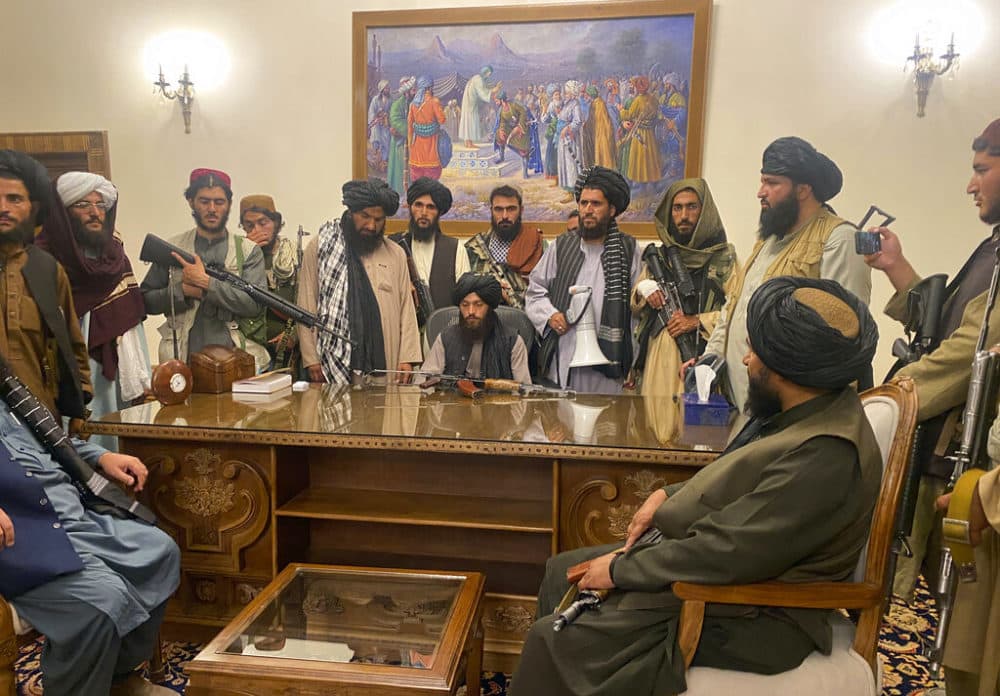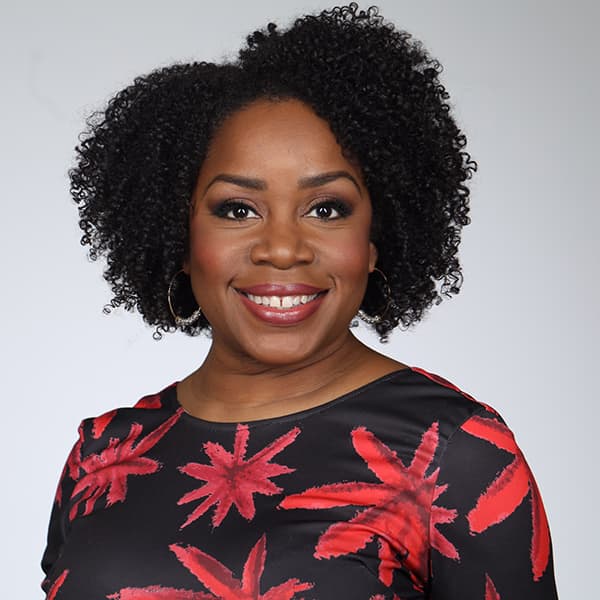Advertisement
Who Are The Taliban Today?
Resume
Taliban leaders say they’ve changed and will rule Afghanistan peaceably.
But there are widespread reports of violence and vengeance on the ground. No surprise, says one Taliban watcher:
“The Taliban is not a monolithic organization. It consists of different factions," Anand Gopal says. "And because of that, it's both Taliban 1.0 and Taliban 2.0.”
So which faction will win out? Can they really balance fundamentalism and pluralism? We hear from a former U.S. diplomat who says, if you think you know, think again.
"The Taliban has been an extremely secretive organization over the last 20 years," Laurel Miller says. "There's a lot that no one on the outside knows about them.”
Guests
Laurel Miller, director of International Crisis Group’s Asia Program. (@LaurelMillerICG)
Anand Gopal, journalist and professor at Arizona State University’s Center on the Future of War. (@Anand_Gopal_)
Ian Fritz, he was an airborne cryptologic linguist in the Air Force from 2008 to 2013.
Jane Ferguson, special correspondent for PBS NewsHour. (@JaneFerguson5)
Interview Highlights
On the Taliban's attempt to paint itself in a different way than it did 20 years ago
Anand Gopal: “It's important to understand the Taliban, like really any organization anywhere, is not monolithic. And there are different tendencies in different wings within the movement. So what we're hearing from Suhail Shaheen or others like that is the political wing of the Taliban, who've spent most of their life, at least most of the last 20 years, outside the country. And are a bit more cosmopolitan, and have evolved quite a bit. There is another wing inside the country which has mostly been fighting for the last two decades, and I think they haven't evolved in the same way.”
How do these two different sides come together?
Anand Gopal: “There's a lot of jockeying for position right now. For example, who's going to take which ministries? There are those members who want revenge. These are people who mostly fought for the last two decades, who themselves have suffered tremendous loss. Most military Taliban have had family members who've been killed. They've come from the countryside, villages, which have seen tremendous violence over the last decades. And so there's a tendency among them to want revenge.
"Whereas the other wing, let's say the political wing, understand that they need the international community and they want to engage with the international community. So there's been, for example, efforts for them to put their people in charge in Kabul. But there's been a lot of confusion within the Taliban ranks. There have been multiple governors, multiple mayors, different people competing for the same positions.”
On the message the political wing of the Taliban is putting forward
Jane Ferguson: “Most people are really waiting it out to see what the real Taliban is going to be like. We've heard Kabul has really been the center of Taliban's PR offensive to the international community. They had their first press conference here, which, of course, is ironic because, of course, they have been targeting the press, specifically the Afghan press, for a long time now, and up until very recently. We can see very clear messaging. ... Their first question was with a female journalist. They wish to tell the international community that it's safe to stay.
"They've even been tweeting in recent days, images of little girls going back to school, entering school. So there's definitely messaging. I think there's a deep, deep sense of cynicism about how serious that's going to be. Let's not forget that it hasn't been 20 years since the Taliban ruled. They've been ruling their own areas of Afghanistan throughout that 20 years. And I've been to some of those areas where the local Taliban commanders may tell us that girls' schools are permitted and opened, but the locals have corrected them and said, look, this is not the case.
"You know, up until very recently, the Taliban have been assassinating professional women in a coordinated campaign. Women in social spheres, human rights activists, journalists, judges. So the idea that that's all going to suddenly change this week is something that you can forgive people for being cynical about.”
On the forming of a government
Jane Ferguson: “They are working to form a government. There's been lots of meetings and backroom discussions. They have also been holding press conferences and they've been holding more orderly, kind of large ... big, big, big traditional meetings where they'll invite people. So they've had a certain degree of order that they've kept in the city. They have attacked peaceful protesters, however, who have protested against the replacement of the traditional Afghan Republic flag.
"So we've seen scenes of chaos as a result of them attacking protesters. But generally speaking, it's hard to tell whether or not the order in the capital, the fact that shops are open, businesses are open, traffic runs, society continues. It's hard to know if that's because of the Taliban's rule at the minute or whether that's simply the people here getting on with their lives as best they can.
"There's not a huge amount of Taliban fighters in this city and they received very, very little. Everyone was quite shocked by how little resistance they met when they arrived. I saw them come in. They literally walked down the road. So I don't think the sturdiness or the steadiness of their rule has yet been tested enough to answer that.”
What do you expect to see next in the way that the Taliban governs? Do you think the factions within the group can lead to further divisions?
Laurel Miller: “What we know for sure is that their number one priority will be to prevent factionalization. And this is one of the reasons why their internal processes for decision making tend to be fairly slow, focused on consensus building in order to avoid decisions that might be divisive. They sort of build consensus before anything is agreed upon. I think that's one reason why their process of forming a government now has been fairly slow. But, you know, this will continue to be a challenge for them because it is much harder to be a government than it is to be an insurgency. It's much more expensive to be a government than it is to be an insurgency. And so they have huge challenges ahead on being able to really consolidate control of the country.”
Next steps: How should the U.S. be engaging with the Taliban?
Laurel Miller: “It's not problematic for the U.S. to engage with them for some very limited and specific purposes. In addition to the evacuation ... there's a huge humanitarian crisis in Afghanistan. There needs to be a strong diplomatic effort, not only on the part of the U.S., but including the U.S. to engage with the Taliban in ensuring that there is access for humanitarian aid providers. And that that flows freely to the Afghan people. That's a kind of limited purpose in which you can have diplomatic interactions with the Taliban.
"I think it's also likely that the U.S. is going to try, though it may not succeed, to engage with the Taliban quietly on issues related to counterterrorism. Keeping a lid on terrorist groups that are still in Afghanistan, who could grow. The real problems are going to come beyond that, is the U.S. going to recognize a Taliban government is legitimate? Will it allow foreign assistance to flow to the Taliban? Will it allow them to take up the seat of Afghanistan in the United Nations? This is where you get into some politically toxic territory.”
From The Reading List
The Atlantic: "What I Learned While Eavesdropping on the Taliban" — "When people ask me what I did in Afghanistan, I tell them that I hung out in planes and listened to the Taliban."
This program aired on August 24, 2021.

